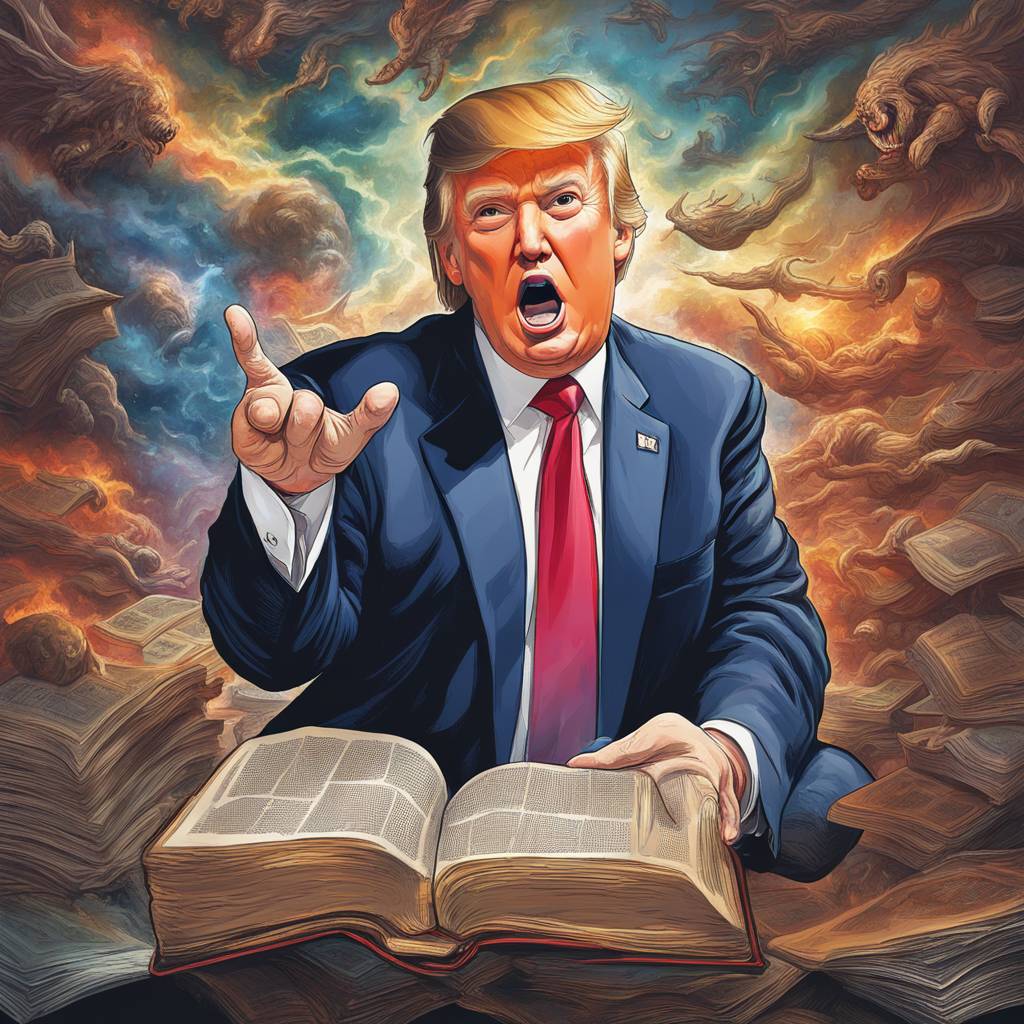On this Easter weekend, Donald Trump is positioning himself as a messianic figure, comparing himself to Jesus on the cross and claiming to be a martyr for his supporters. Despite his history of moral failings, Trump is embracing a Messiah complex and presenting himself as a savior to his followers. He is selling products like cologne and Bibles adorned with his image, using his purported martyrdom as a marketing tool.
Trump’s attempt to position himself as a religious figure is met with skepticism and criticism from many, including political commentator David Axelrod. Trump’s promotional tactics, including claims that Christians are under siege and promises to protect pro-God content, are seen as insincere and exploitative. His previous actions, such as the tear-gassing of protesters for a photo op with a Bible, undermine his attempts to portray himself as a defender of faith.
The use of religion and patriotism by Trump as a means to manipulate and exploit chaos in society is not a new tactic. Maria Konnikova, in her book “The Confidence Game,” explains how grifters thrive in times of uncertainty and change. Trump’s ability to tap into the fears and insecurities of his supporters, as well as the declining faith in traditional institutions, makes him a dangerous and destabilizing force in politics.
The decline in religious faith and the rise of conspiracy theories have created a vacuum that Trump is eager to fill with his own brand of messianic fervor. With a population searching for something to believe in, Trump’s false promises of protection and salvation find a receptive audience. The proliferation of conspiracy theories in the absence of traditional faith institutions has created a breeding ground for manipulation and exploitation by figures like Trump.
The comparison of Trump to historical figures such as Elmer Gantry and fictional snake-oil salesmen highlights the danger of allowing a charlatan into positions of power. Trump’s willingness to exploit religious symbols and beliefs for personal gain underscores his lack of moral compass and integrity. The consequences of allowing such a figure to hold power could have far-reaching implications for democracy and the rule of law.
As Easter approaches, Trump’s attempts to position himself as a modern-day messiah serve as a cautionary tale about the dangers of falling for false prophets. His manipulation of faith and patriotism for personal gain underscores the importance of remaining vigilant against those who seek to exploit our deepest beliefs and values for their own benefit. In a world plagued by chaos and uncertainty, it is more important than ever to question and challenge those who seek to lead us astray with promises of salvation and protection.








